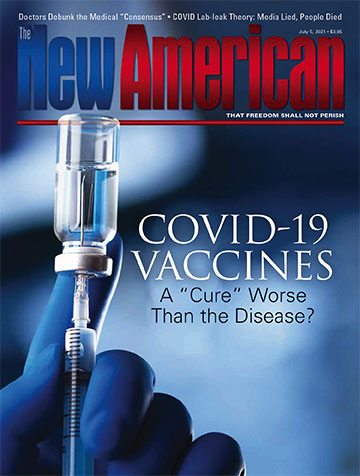Mask Confusion: Infringing on Individual Rights
“It’s sad. I wasted a whole year of my life for this?” This was a text message from my 22-year-old son, who tested positive for COVID. His only symptom? Loss of smell. From the perspective of a healthy 20-something, preventive interventions were far worse than the disease. This illustrates the individual nature of health-risk assessment. Assessing health risk and the measures taken to protect oneself is personal. Yet, protection from COVID-19, in the form of cloth masks, was required for all, even the healthy, low-risk population. Despite an absence of scientific data supporting cloth mask effectiveness, this became the social norm. How could “cloth masks for all” have happened at a time when “follow the science” was touted by every politician, authority figure, and media organization as a worthy battle cry? A retrospective view of the past year provides answers and reveals how individual rights were trampled by masking requirements and baseless mandates emanating from manipulation, fear, confusion, and a lack of information and understanding rather than from actual science. Rather than government making such decisions for people, coercing them to obey with fear, people need to be allowed to make health decisions for themselves. Medical tyranny has no place in the American constitutional republic.
Behind the Mask
During the early stages of the pandemic, respiratory protection in the form of N95 and surgical masks was in high demand by healthcare workers and the general public. Unfortunately, such masks were in short supply. Public demand for these masks had to be stopped to free up supply for healthcare personnel. On February 29, 2020, then-U.S. Surgeon General Jerome Adams tweeted, “Stop buying masks! They are NOT effective in preventing the general public from catching #Coronavirus, but if healthcare providers can’t get them to care for sick patients, it puts them and our communities at risk.” This was certainly a confusing statement to anyone without knowledge of respiratory protection. Did the surgeon general really say surgical masks are not effective for the public, yet effective for others? And did he suggest that the effectiveness of masks is location-dependent, i.e., hospital versus the grocery store? This was only the beginning of mask confusion. On April 18, 2020, the FDA released its Emergency Use Authorization (EUA) to manufacturers of face masks (cloth and non-FDA surgical-like masks with questionable effectiveness), justifying the EUA by concluding that increased availability of face masks was needed for the general population, so FDA-approved surgical masks could be reserved for healthcare workers.
On April 3, 2020, the Centers for Disease Control (CDC) introduced a cloth mask “pattern” and instructed the general population to make their own cloth masks using this template. The public, with little understanding of respiratory protection, bought into this intervention, believing cloth masks to be as protective as the masks being prioritized for healthcare workers. To make matters more confusing, on April 24, 2020, the FDA set labeling requirements for the manufacturers of face masks for the public. The EUA specifically states that cloth and non-FDA surgical-like masks (intended for the public) could not be labeled as “a surgical mask; for use in a clinical setting where infection risk through inhalation is high; for antimicrobial or antiviral protection or uses for infection prevention or reduction; or as a respiratory protection device.” So, why would the public be encouraged and eventually required to wear these EUA-sanctioned cloth masks? According to FDA labeling prohibitions, it is most certainly not for the prevention of viral infection. When it comes to matters of public health, public trust is critical, and this was not a good place to start.
JBS Member or ShopJBS.org Customer?
Sign in with your ShopJBS.org account username and password or use that login to subscribe.

 Subscribe Now
Subscribe Now
- 24 Issues Per Year
- Digital Edition Access
- Exclusive Subscriber Content
- Audio provided for all articles
- Unlimited access to past issues
- Cancel anytime.
- Renews automatically

 Subscribe Now
Subscribe Now
- 24 Issues Per Year
- Print edition delivery (USA)
*Available Outside USA - Digital Edition Access
- Exclusive Subscriber Content
- Audio provided for all articles
- Unlimited access to past issues
- Cancel anytime.
- Renews automatically


